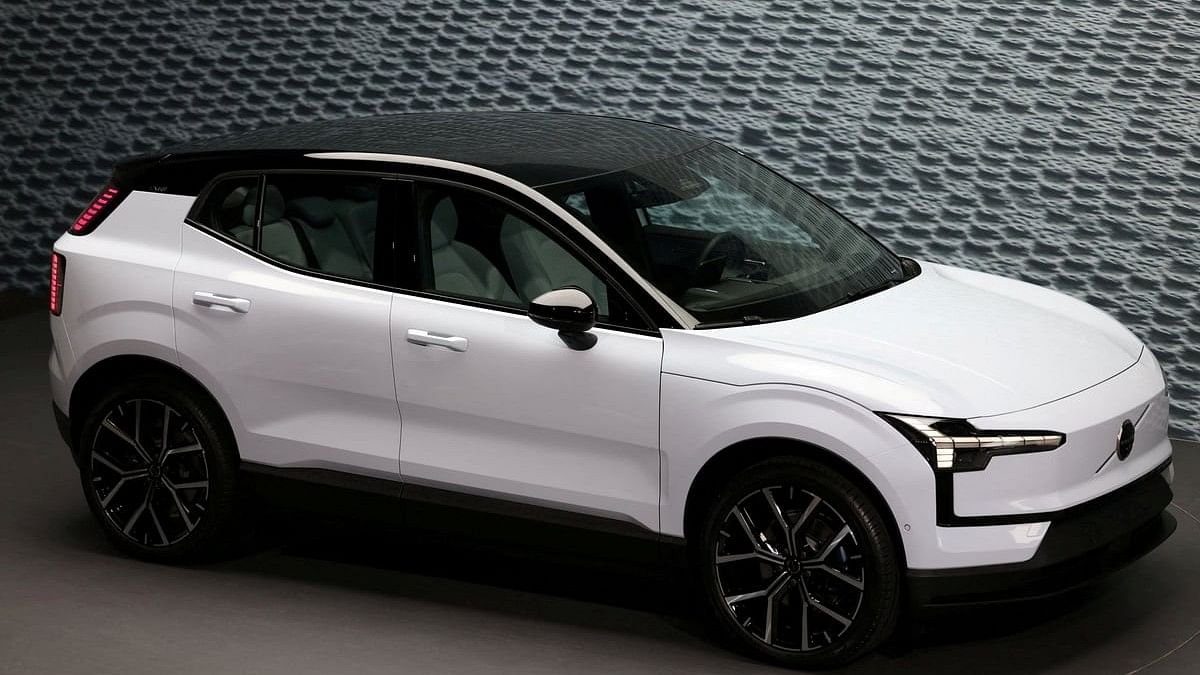
An image of the Volvo EX30 fully-electric small SUV.(Representational Image)
Credit: Reuters File Photo
Volvo Car has started to shift production of Chinese-made electric vehicles to Belgium in anticipation that the European Union will crack down on Beijing-subsidised imports, the Times reported on Saturday.
The European Commission, which oversees trade policy in the 27-nation European Union, launched an investigation last year into whether fully-electric cars manufactured in China were receiving distortive subsidies and warranted extra tariffs.
Volvo, which is majority-owned by China's Geely, was considering halting sales of Chinese-built EVs bound for Europe if tariffs were introduced, the newspaper said, citing company insiders.
However, the report added that shifting production of Volvo's EX30 and EX90 models from China to Belgium means the company would not have to halt sales and was no longer considering doing so.
The manufacturing of certain Volvo models bound for the United Kingdom could also be moved to Belgium, Times said.
"It is premature to speculate on the implications of what this investigation will conclude, or any potential measures," a Volvo spokesperson told Reuters, referring to the EU's probe.
The decision to build the EX30 in Belgium, with production starting in 2025, is to build cars where they can be sold as much as possible, the spokesperson said, adding that the EX90 is being built in the United States, not China.
Volvo confirmed last October that it would be adding capacity in Ghent for EX30 production from 2025, the spokesperson said.
The EU's anti-subsidy investigation, officially launched on Oct. 4, can last up to 13 months. The Commission can impose provisional anti-subsidy duties nine months after the start of the probe.
Relations between China and the EU have been strained by factors including Beijing's closer ties with Moscow after Russia's invasion of Ukraine. The EU is seeking to reduce its reliance on the world's second-largest economy, particularly for materials and products needed for its green transition.